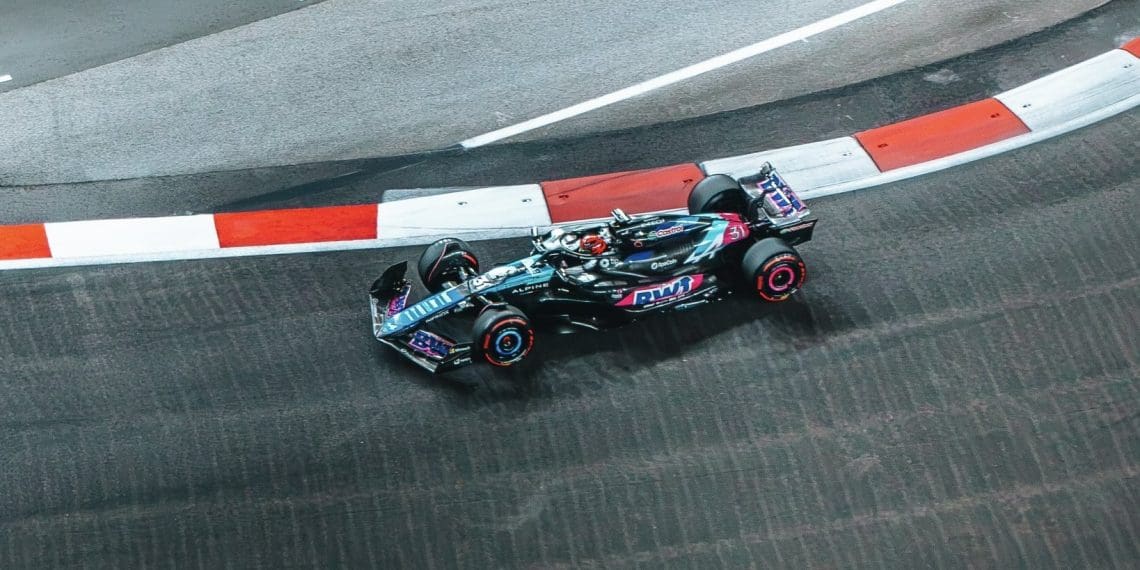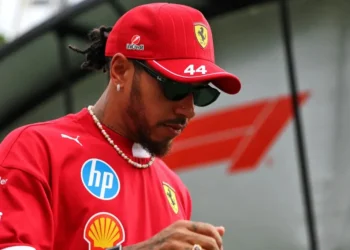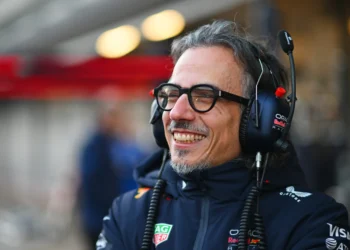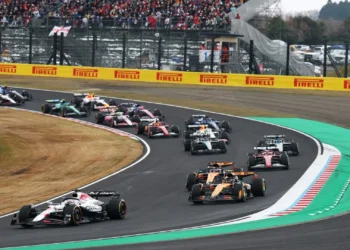In a shocking turn of events, Renault’s F1 legacy teeters on the edge of oblivion. While Alpine’s polite confirmation that its engine programme will continue until the end of 2025 may sound like business as usual, it’s nothing more than the prelude to an inevitable shutdown. The subtle signals couldn’t be clearer: Renault is pulling the plug on its once-proud engine operation, and the consequences for the brand could be catastrophic.
Despite no official word from the automaker, the writing is on the wall—Alpine is heading toward becoming a mere Mercedes customer by 2026, marking a stunning collapse for a company that once prided itself on independence. Is this Renault’s final act in Formula 1, a weak surrender of ambition, or an unavoidable outcome of years of internal turmoil?
The Collapse of a Titan: Renault’s Self-Inflicted Wound
Renault’s impending engine exit is a slap in the face to its fans, its employees, and its heritage. For decades, Renault engines have been synonymous with F1 innovation, from pioneering turbo technology to powering championship-winning cars. But this decision feels like a surrender, an admission that Renault cannot keep up with the giants of modern F1. Worse, it smacks of incompetence—sacrificing the team’s competitive potential at the altar of corporate mediocrity.
Why would Renault, a company with such deep motorsport roots, voluntarily relinquish control of its engine program? The message is painfully clear: Renault no longer believes in its ability to compete at the highest level. While they insist it’s about pragmatism and financial sustainability, the reality is far grimmer. This move signals the collapse of a team that’s lost its way—an admission that Renault is incapable of reaching the top tier of F1 ever again.
A History of Ambition Reduced to a Whimper
For a company that once dominated the F1 grid with its iconic V10 engines, this slow death is almost tragic. Renault has been in Formula 1 for decades, making headlines, creating innovations, and battling the best teams in the world. But now, after years of underinvestment, poor management, and a revolving door of leadership, the dream is dying. Renault’s hybrid engine program has been a nightmare since 2014, never managing to catch up to rivals. What began as a bold ambition has turned into a humiliating failure.
Alpine’s choice to switch to Mercedes engines reeks of desperation. It’s a cold, corporate maneuver that exposes the real truth—Renault is done pretending it can still compete as a full works team. Instead of striving to create something great, they’ve chosen the easy way out, opting to survive as a customer team, cutting ties with Viry-Chatillon, the very heart of its engine operations.
The Mercedes Mirage: A Quick Fix or a Long-Term Collapse?
If Renault thinks becoming a Mercedes customer will magically solve all of its problems, they’re delusional. Yes, McLaren has thrived as a Mercedes customer, but they are a unique case. Renault isn’t just another team trying to punch above its weight—it’s a former powerhouse that’s forgotten how to win. Handing over the keys to Mercedes might give them short-term gains, but it will never restore them to their former glory.
Renault’s decision is a sad, limp concession that the company simply cannot keep pace with the titans of Formula 1 anymore. It’s a strategy born out of failure, not ambition. A company that once set the bar for innovation has been reduced to this—a team content to piggyback on the success of another manufacturer.
Renault’s Betrayal: The Uncivilized End of a Civil War
Renault’s internal chaos has been its undoing. The division between its Viry-Chatillon engine factory and Enstone chassis operation has long been a source of tension. It’s clear now that this conflict has finally boiled over, and Enstone has won the battle for survival. But it’s a hollow victory. By severing its engine program, Renault is not just turning its back on decades of history; it’s telling its workforce, “we’re moving on without you.”
And then there’s the shadow of Flavio Briatore. The controversial figure has returned, pulling the strings behind the scenes. Is this really the man Renault trusts to lead them into the future? It feels more like an act of desperation, a last-ditch effort to salvage something from the wreckage.
A Sad Farewell to a Lost Giant
This decision is a profound betrayal of the Renault legacy. A company that once stood tall as a leader in F1 technology is now bowing out, choosing to fade into obscurity. The Renault that dominated F1 with turbo engines and powered Red Bull to titles is gone, replaced by a shell of its former self. The decision to shutter the engine program is not just a pragmatic step; it’s the final nail in the coffin of Renault’s ambitions.
For those who have followed the company’s journey from triumph to tragedy, this is the bitter end. Renault’s long-standing war with itself has finally come to an end, and it’s the fans, the employees, and the sport itself that are left to pick up the pieces.
The Legacy in Ruins
Renault’s legacy in F1 will always be tarnished by this sorry exit. They may have produced championship-winning engines, but they never truly realized their potential. As Renault prepares to limp off the grid, one thing is clear—this is not just the end of an engine program. It’s the end of an era, a collapse of monumental proportions that will forever haunt the brand.
Will Alpine thrive with Mercedes engines? Perhaps. But no matter what happens next, Renault will forever be remembered as the giant that lost its way, a company that chose survival over greatness, and a legacy that faded into the shadows of Formula 1.
Photo from (X) Alpine Account










